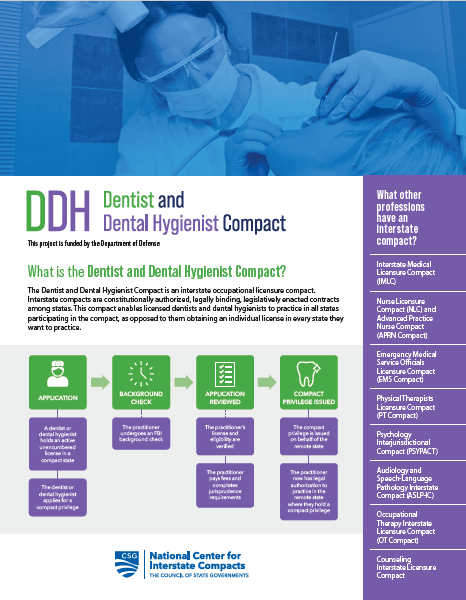
About
The Council of State Governments (CSG) is partnering with the Department of Defense (DoD), the American Dental Association (ADA), and the American Dental Hygienists’ Association (ADHA) to support the mobility of licensed dentists and dental hygienists through the development of a new interstate compact. This compact will create reciprocity among participant states, and reduce the barriers to license portability.
Current Status
The Dentist and Dental Hygienist Compact has reached activation status, however compact privileges are not yet being issued. The implementation process for the compact will take 18 to 24 months before compact privileges are able to issued. For more information download the What’s Next? resource.
The following language must be enacted into law by a state to officially join the Dentist and Dental Hygienist Compact.
No substantive changes should be made to the model language. Any substantive changes may jeopardize the enacting state’s participation in the Compact.
The Council of State Governments National Center for Interstate Compacts reviews state compact legislation to ensure consistency with the model language.
A copy of the legislation is available below:
Compact Commission
All commission meetings are open to the public. For more information and to register visit the Full Commission Meetings page or Rules Committee Meetings page.

